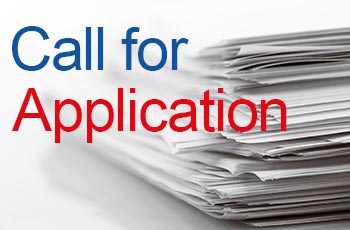Call for paper: XVIIIe Mega Tchad Symposium

IFRA-Nigeria is partnering the organisation of the 18th Mega Tchad Symposium that will be held in N’Djamena (Chad) on the 29th, 30th and 31st of January 2020.
The 18th Mega-Chad symposium seeks to replace the current dynamics in the Lake Chad basin (Chad, Niger, Nigeria, Cameroon, Central African Republic, Sudanese, Libyan and Algerian peripheries) in a historical perspective, enabling us to understand the situations of rupture or continuity linked to past dynamics.
As we enter the 21st century, the Lake Chad basin is confronted with the entrenchment of long-term and short-term changes, impacting together the territories: climate change is deeply impacting modifying the functioning of ecosystems, the population growth has an increasing pressure on available resources, insecurity is rising and causing major population displacements, disrupting the functions of territories and modalities of access to natural resources. In addition, the economic and financial crisis, linked to fluctuations of commodity prices on international markets and lack of diversification of economies, which weakens the economic and political foundations of States and generates, at the local level, the redefinition of identities and societies.
How can we characterize and interpret these contemporary dynamics? Does the current situation mark a profound break in a historical trajectory, determined by recurrent crises? Can we observe adjustments or the emergence of a new equilibrium for resilient regional system? Echoing questions from institutional history or historical sociology on the temporalities of change (Mahoney, 2000; Capoccia, Kelemen, 2009), the Mega-Chad symposium, faithful to its multidisciplinary tradition, will explore the meanings and temporalities of changes through a wide variety of approaches and objects.
Recent studies highlight the intertwining of crisis factors (Magrin and Perouse de Montclos, 2018), some seeing resurgence of past forms of violence (Seignobos, 2017; McEachern, 2018), others stressing the importance of climate change and population growth (Welzer, 2009), others emphasizing political factors (Perouse de Montclos, 2018). During this symposium, we will seek to identify periods of crisis and changes in the past, their temporality regimes at local and regional levels and their effects, to identify those that have marked a breakdown with older systems, as reflected in the present. What are the (r)evolutions perceived by observers and stakeholders? How are the memories of past changes and regimes of historicity (Hartog, 2014) presented and disseminated, both through practices and discourses? How is the past reflected in the present?
Five closely related types of changes can be analysed:
- Social changes
- Changes in production systems
- Economic changes
- Environmental and landscape changes
- Political and territorial changes
In prevision of the event, a call for contributions has been launched. Contributions from various disciplines (anthropology, archaeology, ecology, geography, history, linguistic, political sciences, etc.) will be examined and selected according to the following schedule:
- Mid-March 2019: release of the call for papers;
- June 15: reception of abstracts (1 page, title, 400 words, keywords, authors' discipline)
- - June: selection of abstracts by the scientific committee;
- 15 July: reply to the authors;
- 15 November: reception of communications;
Proposals are expected by June 15 at the latest at: This email address is being protected from spambots. You need JavaScript enabled to view it.
Find bellow a link with detailed information on the call (in French and then in English):
Registration and other practical details will be communicated in a second time.
Contacts:
- Christine RAIMOND, CNRS / UMR Prodig (France) : This email address is being protected from spambots. You need JavaScript enabled to view it.
- Zakinet DANGBET, U N'Djaména (Chad) : This email address is being protected from spambots. You need JavaScript enabled to view it.
- Mirjam de BRUIJN, U Leiden (Netherland) : This email address is being protected from spambots. You need JavaScript enabled to view it.
- Robert MADJIGOTO, U N'Djaména (Chad) : This email address is being protected from spambots. You need JavaScript enabled to view it.
- Amane TATOLOUM, U N'Djaména (Chad) : This email address is being protected from spambots. You need JavaScript enabled to view it.

Social Media
Mailing List